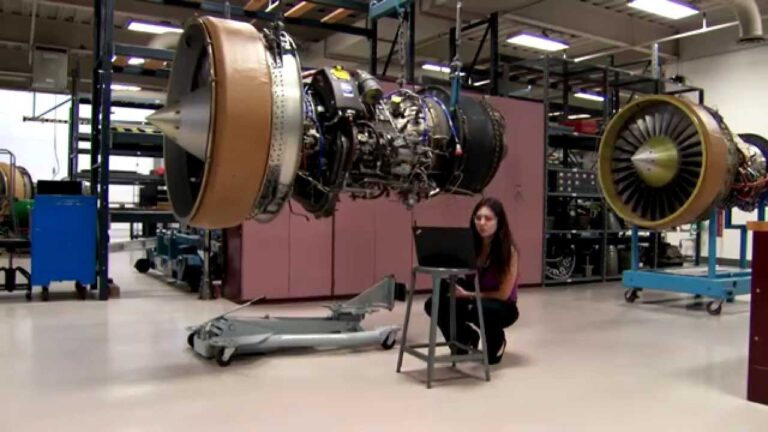Discover the Ct Radiographer Job Description and Salary!

Ct Radiographer Job Description Template
CT Radiographer Job Description A CT Radiographer, also known as a CT Technologist, is a healthcare professional who specializes in performing computed tomography (CT) scans on patients. They operate CT scanners, which are advanced medical imaging devices used to produce detailed cross-sectional images of the body. The primary responsibility of a CT Radiographer is to ensure the safety and comfort of patients during the scanning process. They carefully position patients, explain the procedure, and answer any questions or concerns. They also monitor patients for any adverse reactions to contrast agents used in some CT procedures. Another crucial aspect of the job is operating and maintaining the CT scanner. CT Radiographers must have a thorough understanding of the equipment and its software to produce accurate and high-quality images. They adjust the scanner settings, such as slice thickness and radiation dose, according to the specific imaging requirements of each patient. In addition to operating the CT scanner, CT Radiographers are responsible for reviewing and analyzing the images they capture. They need to have a strong knowledge of anatomy and pathology to identify any abnormalities or potential issues. They may collaborate with radiologists or physicians to provide accurate diagnoses and suggest appropriate treatment plans. Two important skills for a CT Radiographer are: 1. Attention to Detail: CT scans require precise positioning and accurate image acquisition to ensure diagnostic quality. CT Radiographers must pay close attention to detail and follow strict protocols to obtain high-quality images that can aid in accurate diagnoses. 2. Communication Skills: CT Radiographers interact with patients on a daily basis, explaining procedures, answering questions, and providing reassurance. They must have excellent communication skills to effectively convey information to patients and make them feel comfortable during the scanning process. In conclusion, a CT Radiographer plays a crucial role in the diagnostic process by operating CT scanners, capturing high-quality images, and assisting in accurate diagnoses. Their attention to detail and strong communication skills are vital for providing optimal patient care.Ct Radiographer Responsibilities
Ct Radiographer Requirements
How Much Does A Ct Radiographer Make?
Ct Radiographer Salary
| Experience Level | Salary Range |
|---|---|
| Entry Level | $45,000 – $60,000 |
| Mid-Career | $60,000 – $75,000 |
| Experienced | $75,000 – $90,000 |
| Senior | $90,000 – $110,000 |
A CT Radiographer, also known as a CT Technologist, is a healthcare professional specializing in performing computed tomography (CT) scans on patients. Their main responsibility is to operate CT scanners and capture detailed images of a patient’s internal organs and tissues. Along with their technical skills, CT Radiographers must also possess strong communication and patient care abilities. The salary of a CT Radiographer can vary based on experience level. Entry-level CT Radiographers can expect to earn between $45,000 and $60,000 per year. As they gain more experience and advance in their careers, their salary range can increase to $60,000 – $75,000 for mid-career professionals, $75,000 – $90,000 for experienced individuals, and $90,000 – $110,000 for senior CT Radiographers. These salary ranges are influenced by factors such as geographic location, level of education, certifications held, and the specific healthcare facility or organization. Overall, CT Radiography offers competitive salaries and ample opportunities for career advancement in the field of medical imaging.
Ct Radiographer Salaries by Country
Top Paying Countries for CT Radiographers
| Country | Average Salary (USD) |
|---|---|
| United States | $70,490 |
| Australia | $63,000 |
| Switzerland | $61,000 |
| Canada | $57,000 |
| United Kingdom | $49,000 |
CT Radiographers are highly sought-after healthcare professionals who specialize in using computed tomography (CT) scanners to produce detailed images of patients’ internal organs and tissues. The salaries for CT Radiographers vary significantly by country, with the United States being the top paying country, offering an average salary of $70,490 per year. Australia and Switzerland also offer competitive salaries for CT Radiographers, with average annual earnings of $63,000 and $61,000, respectively. Canada and the United Kingdom also provide attractive compensation for CT Radiographers, with average salaries of $57,000 and $49,000, respectively. These salaries reflect the high level of skill and expertise required in this field, as well as the demand for qualified CT Radiographers in these countries.
A video on the topic Ct Radiographer
Video Source : Julia KristineInterview Questions for Ct Radiographer
1. What is the role of a CT radiographer?
A CT radiographer is responsible for operating the CT scanner to produce detailed cross-sectional images of patients’ internal structures. They ensure patient safety, prepare patients for the procedure, and assist radiologists in interpreting the images.
2. What are the essential skills for a CT radiographer?
Some essential skills for a CT radiographer include strong technical knowledge of CT equipment, excellent communication and interpersonal skills, attention to detail, ability to work under pressure, and compassion towards patients.
3. How do you ensure patient safety during a CT scan?
To ensure patient safety during a CT scan, I verify the patient’s identity, explain the procedure to them, and answer any questions or concerns they may have. I also assess the patient’s medical history and any potential contraindications, such as allergies or pregnancy, and take necessary precautions.
4. How do you handle difficult or anxious patients during a CT scan?
When dealing with difficult or anxious patients, I try to establish a rapport and build trust by explaining the procedure in a clear and empathetic manner. I address their concerns and provide reassurance throughout the process. If necessary, I involve other healthcare professionals, such as nurses or psychologists, to assist in calming the patient.
5. How do you maintain the quality of CT images?
To maintain the quality of CT images, I ensure proper patient positioning and immobilization, adjust technical parameters based on the patient’s size and condition, and use appropriate contrast agents when necessary. Regular calibration and maintenance of the CT scanner are also crucial to obtain high-quality images.
6. How do you handle emergencies or adverse reactions during a CT scan?
In the event of emergencies or adverse reactions during a CT scan, I follow established protocols and immediately stop the procedure if necessary. I assess the patient’s condition, provide appropriate medical interventions, and promptly inform the radiologist or other healthcare professionals for further management.
7. How do you ensure radiation safety for yourself and others?
To ensure radiation safety, I strictly adhere to radiation protection guidelines and wear appropriate personal protective equipment, such as lead aprons and thyroid shields. I also limit the radiation exposure time by using the lowest possible dose and employing shielding techniques when applicable.
8. How do you maintain patient confidentiality in your work as a CT radiographer?
To maintain patient confidentiality, I strictly follow HIPAA regulations and ensure that patient information is securely stored, accessed only by authorized personnel, and not disclosed to anyone without proper consent. I also use secure electronic systems for data transmission and maintain professionalism in all interactions regarding patient information.
9. How do you stay updated with the latest advancements in CT imaging?
To stay updated with the latest advancements in CT imaging, I regularly attend professional development courses, workshops, and conferences. I also participate in online forums and subscribe to reputable radiology journals to keep myself informed about new techniques, research, and equipment advancements.
10. How do you handle challenging or complex cases in CT imaging?
When dealing with challenging or complex cases in CT imaging, I collaborate closely with radiologists and other healthcare professionals to develop a comprehensive imaging plan. I review relevant medical records and consult with colleagues to ensure the most appropriate imaging protocols are followed to obtain accurate diagnostic information.






